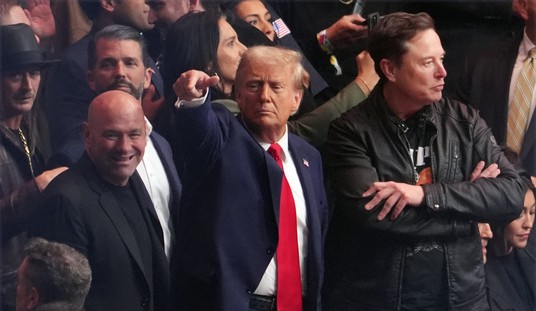When it comes to “the evolving story of the firing of Jill Abramson by the NY Times,” Neo-Neocon writes, “I confess I’m more fascinated than I should be (and perhaps than you are).” Well, I’m pretty fascinated by it, as the New York Times, perhaps more than any other American newspaper, is a microcosm of where American leftwing thought is focused on any given day. The rococo tone, the byzantine obsessions, the liberal fascism and the rank hypocrisy, it’s all in there somewhere.
Not to mention the nepotism. After praising Matthew Continetti’s take on today’s would-be Timesmen as overgrown tykes playing dress-up, Neo writes, “when [Continetti] uses the word ‘children’ to describe the people who operate the Times, the appellation is quite literally true, and not just in the sense that he meant it:”
Sulzberger, the main player here, inherited the Times from his father. Like many newspapers, the Times is (among other things) a family business passed down mostly from father to son (although initially through a daughter). As with most such enterprises, the founder is often a person of great drive and accomplishment, and the children often represent a drop-off in the latter if not the former:
Sulzberger was born in Mount Kisco, New York, the son of Barbara Winslow (née Grant) and the previous Times publisher Arthur Ochs Sulzberger, grandson of Times publisher Arthur Hays Sulzberger, and the great-grandson of Times owner and publisher Adolph Ochs.
As such, Sulzberger himself is pretty much immune from firing, and probably knew from the start where he’d end up. Here’s the bio of his father and predecessor, and here’s the story of his grandfather (who, although a Reform Jew, was a noted and vocal anti-Zionist who played down the Holocaust in the paper’s pages during the war).
Here is the family’s first NY Times owner Adolph Ochs, who was a self-made man. Note the irony in the following [emphasis mine]:
After borrowing money to purchase The New York Times, [Ochs] formed the New York Times Co., placed the paper on a strong financial foundation, and became the majority stockholder. In 1904, he hired Carr Van Anda as his managing editor. Their focus on objective journalism, in a time when newspapers were openly and highly partisan, and a well-timed price decrease (from 3¢ per issue to 1¢) led to its rescue from near oblivion. The paper’s readership increased from 9,000 at the time of his purchase to 780,000 by the 1920s…
Ochs was engaged in crusading against anti-Semitism.
How did the Sulzbergers get into the act? Ochs’ only daughter married Arthur Hays Sulzberger, who inherited the mantle and passed it on to his descendents.
“There’s an old American saying: ‘From shirtsleeves to shirt sleeves in three generations,’” the late Alistair Cooke wrote for the BBC in early 2001:
Not surprisingly this phrase became current during the era – the 1870s and 80s – the era of the so-called “Robber Barons”, when poor immigrants — Andrew Carnegie, John D Rockefeller were spectacular examples — arrived in an industrial town, laboured relentlessly, spotted the possibilities in some humble element they worked on – coal, coke.
With the young clerk, Rockefeller, it was a sticky oil that oozed from the ground which the Indians had used as a laxative.
The young clerk sank his modest savings in this ooze and it turned him into the head of Standard Oil and made JD Rockefeller what one old diarist called “a leviathan of wealth”.
But both Carnegie and Rockefeller, once they’d acquired their fortune, spent the rest of their lives dispersing it, in medical, educational and other philanthropic institutions which, to this day, are towering testaments to the value of research unfettered by government.
But many more smaller figures of the Robber Baron age made immense fortunes, took no care of them, were not of a generous or philanthropic nature, handed the money on as a life belt to their sons who then squandered it, so much so that their sons returned to the shirtsleeves in which grandfather had landed in the United States.
Hence the merciless phrase: “From shirtsleeves to shirt sleeves in three generations.”
But then, the New York Times isn’t the only business that was invented by hardscrabble self-made men, only to see their efforts perverted and squandered by their much enervated descendents.
Update: “The arc of a generation is long, but it bends toward poetic justice.”










Join the conversation as a VIP Member